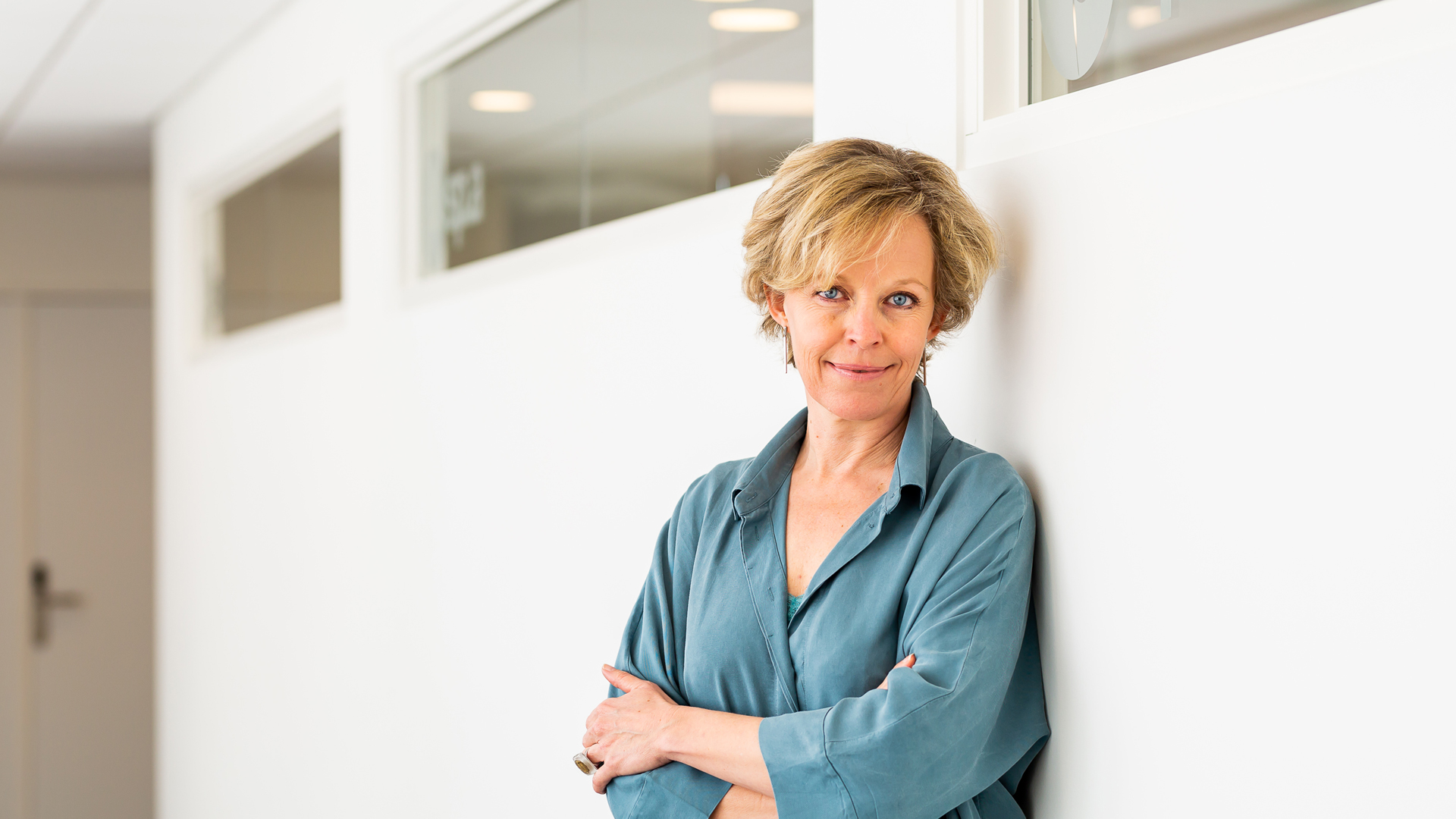After a sixteen-year career in politics, Inga Verhaert has returned to the University of Antwerp full of enthusiasm as the new head of the International Relations Office – where more than one challenge awaits her. ‘The traditional Erasmus programme is not going to disappear, but we need a broader palette of opportunities if we want to keep growing.’
Inga Verhaert earned her stripes serving as an sp.a politician for many years. But before that, between 1994 and 2004, she’d already built up a whole career at our university. Her roles in that period included International Relations Coordinator at what was then still RUCA and policy officer for RUCA’s rector, the late Professor Alain Verschoren. She had a front-row seat during the merger that would lead to the University of Antwerp.
And then came that excursion into politics, which actually became a fully-fledged career switch. What started in 2000 with an appointment to the council of Kalmthout brought her to the Chamber of Representatives in 2004 and to the Province of Antwerp deputation two years later, a position she held until 2018. During those years, her work focussed on international politics and education. ‘When that chapter came to an end, I soon came up with the idea of returning to higher education, where my heart had always been. And then I saw the vacancy for head of the International Relations Office.’
Ceiling reached?
Inga got the job and took over from Piet Van Hove, who now holds a mandate at the European Association for International Education (EAIE). ‘The work of the International Relations Office focusses on European education programmes and cooperation with the Global South, among other things’, explains Inga. ‘And exchange programmes too, of course – it’s a privilege to be involved in that area. After all, today – more than ever – there’s a need to humanise international relations. International education is an excellent tool in this. Through our exchange programmes we help to form new Europeans, as it were, and strong global citizens by extension.’
There’s no getting around the fact that a ceiling seems to have been reached: the number of Flemish university students going on exchanges hasn’t gone up for several years now. Inga hopes to be able to shine a new light on the opportunities available. ‘Research shows that many students are interested, but not in traditional exchanges of six months or more, and for various reasons. That’s why we’re thinking about new forms of exchange – shorter stays, a mix of physical and virtual international education, guest lectures by international lecturers, exchanges linked to work experience… that kind of thing. The familiar Erasmus formula isn’t going to disappear, but we want to broaden the palette.’
The corona crisis has given things a push in the right direction. Inga: ‘Distance learning has forced us to digitise and it’s no longer unusual to have a mixed group of students from Antwerp and abroad. Our role in YUFE (Young Universities for the Future of Europe) and in the development of the new European universities has also given us an edge.’
Avoiding surprises
Inga would also like more attention to be paid to risk management for study and work trips abroad. ‘As a university, we have students, researchers and other members of staff abroad all year round. At the very least, we need to know who is where at all times and make it possible for our people to travel in the best possible circumstances. That means they should be aware of the risks, precautions, what to do if something does go wrong… We’re going to define all these things in procedures. Because the pandemic has taught us that we need to be ready for surprises. Another important aspect is Our High-Risk Destinations Committee, which assesses the risks of travel to less common destinations. We recently made some improvements to the procedure for those assessments and extended it to our students.’
Meanwhile, Inga has taken on another challenge. In December, the rector appointed her to the role of Internationalisation Officer, a university-wide position. ‘The idea is for me to do an analysis of the international initiatives at our institution. What processes are in place? Do they tie in with each other? Is there anything else we should be doing? It also involves, for example, attracting international diploma students, staff exchanges, international research cooperation… It does go beyond the activities of the International Relations Office, but the two roles can’t exist independently.’
Small world
Does her return to the university feel like a big change after her political career? Inga takes a balanced view. ‘Even in my political work, the focus was often on international cooperation. And just like in academia, that’s first and foremost about human relationships.’ During her years away, Inga never really lost touch with the university. ‘Antwerp may be a metropolis, but we kept bumping into each other like in a village’, she laughs.
Though a lot has changed in those sixteen years. ‘From just one international staff member on each campus, we have grown into an International Relations Office with eighteen members of staff and at least a couple of international staff in every faculty. We can also be proud of our summer schools and of our cooperation with the Global South through the Institute of Development Policy. UAntwerp is no longer internationalising – UAntwerp is international.’


